Travel
Provide a safe, dignified and inclusive travel experience for everyone
Travel Inequality: Why Accessibility Still Falls Short
Travel is exciting, exploring new places and cultures, it’s a time to make new memories. The first leg of the journey is usually the beginning of the adventure. However, for mobility impaired passengers it is all too often a challenge, filled with trepidation as they know what lies ahead. From undignified transfers, assistive equipment damaged, lack of space, poor assistance – people are often left feeling like a burden, uncomfortable and anxious.
Although 1 in 4 people in the UK are disabled, according to the Department for Work and Pensions (2023), disabled and mobility impaired individuals still face unequal access to transport. They make approximately 30% fewer journeys per year than non-disabled people, as reported by the Department for Transport (2021) – a figure unchanged in over 20 years; according to the Disability Rights Commission (2003). This disparity is largely due to the poor and often undignified treatment that many mobility-impaired people experience when travelling.
Equitable, dignified travel by aviation, maritime or rail should be a basic human right.
Yet, for many disabled or mobility impaired individuals, the experience falls far short. The journey isn’t just about getting from A to B, it requires extensive pre-planning, scouring the internet for reliable information and navigating unclear or inadequate guidance. In too many cases, poor resources, lack of assistance and systemic oversights leave passengers stranded – physically and emotionally. No one should be made to feel forgotten. It’s time to close the gap and ensure travel works for everyone.

The Truth About Travelling Disabled
British TV presenter and disability advocate, Sophie Morgan, brought national attention to the persistent challenges faced by disabled travellers in her Channel 4 documentary Fight to Fly, which aired in July 2024. The programme exposed the stark reality of air travel for many disabled passengers, revealing that 1 in 4 mobility aid users had their equipment lost or damaged while flying. Although airlines are legally responsible for such damage, compensation is typically capped at around £1,300.00, an amount that often falls significantly short of the actual cost of high-specification mobility aids. Consequently, many disabled travellers are forced to rely on supplementary insurance policies that may still fail to fully cover replacement or repair costs.
A Channel 4 survey of 500 people with reduced mobility further revealed that 50% felt they had been discriminated against when flying, 55% reported experiencing accessibility issues with at least one airline. This echoes the findings of a Scope survey from 2018, which showed that over half (53%) of disabled passengers requiring assistance were frequently left waiting on board aircraft due to delayed support staff, an experience that compounds both frustration and humiliation.
Morgan’s documentary also gave voice to campaigners who shared harrowing personal accounts. From being denied boarding or left stranded on the plane, to being told to wear a nappy, manhandled during transfers or carried over someone’s shoulder – treatment that, in some cases, resulted in physical injury.
The accessibility crisis isn’t limited to air travel. The Transport Accessibility Gap, a study by Motability, found that 2 in 5 people (40%) with physical or hidden disabilities regularly face barriers when travelling by train. Perhaps most troubling is that some disabled passengers miss their stops entirely, due to the absence of staff support at stations, highlighting a transport system that is quite literally, leaving people behind.
These findings underscore a sobering truth: despite legal frameworks and growing awareness, true accessibility in transport remains out of reach for many. Transformative improvements in facilities, training and policies are not just about convenience, they are essential to ensuring freedom, independence and equality for disabled people, rights that non-disabled passengers often take for granted.

A Call for Dignified Travel
The UK Civil Aviation Authority’s latest annual report marks a notable improvement in airport accessibility, with no UK airport receiving a ‘poor’ rating for the first time since 2020. Between April 2023 and March 2024, 11 airports were rated ‘very good’, signalling positive momentum in meeting the needs of disabled passengers. However, whilst this progress is encouraging, it remains uneven. As the demand for accessibility services continues to grow, the CAA emphasises that more must be done to ensure disabled passengers receive the same standard of service as everyone else – making air travel genuinely inclusive.
In response to these ongoing challenges, the UK government has launched the Aviation Accessibility Task and Finish Group, chaired by Paralympian and crossbench peer Baroness Tanni Grey-Thompson. The group includes disability rights advocate and broadcaster Sophie Morgan, bringing together industry leaders and disabled passengers to tackle persistent barriers, such as inadequate assistance, mishandled mobility equipment and limited access to essential onboard services.
The taskforce are looking to develop practical, actionable recommendations aimed at creating a safer, more inclusive, and dignified experience for all air travellers. Sophie Morgan has been vocal in her call for stronger enforcement, urging the CAA to impose fines on airlines that fail disabled customers. Looking further ahead, she also champions a fundamental redesign of aircraft; one that would finally allow disabled passengers to remain in their own wheelchairs whilst flying – just as they can on trains.
This collaborative initiative represents a critical opportunity to move beyond minimum standards and towards a future where air travel is not only accessible, but equitable.
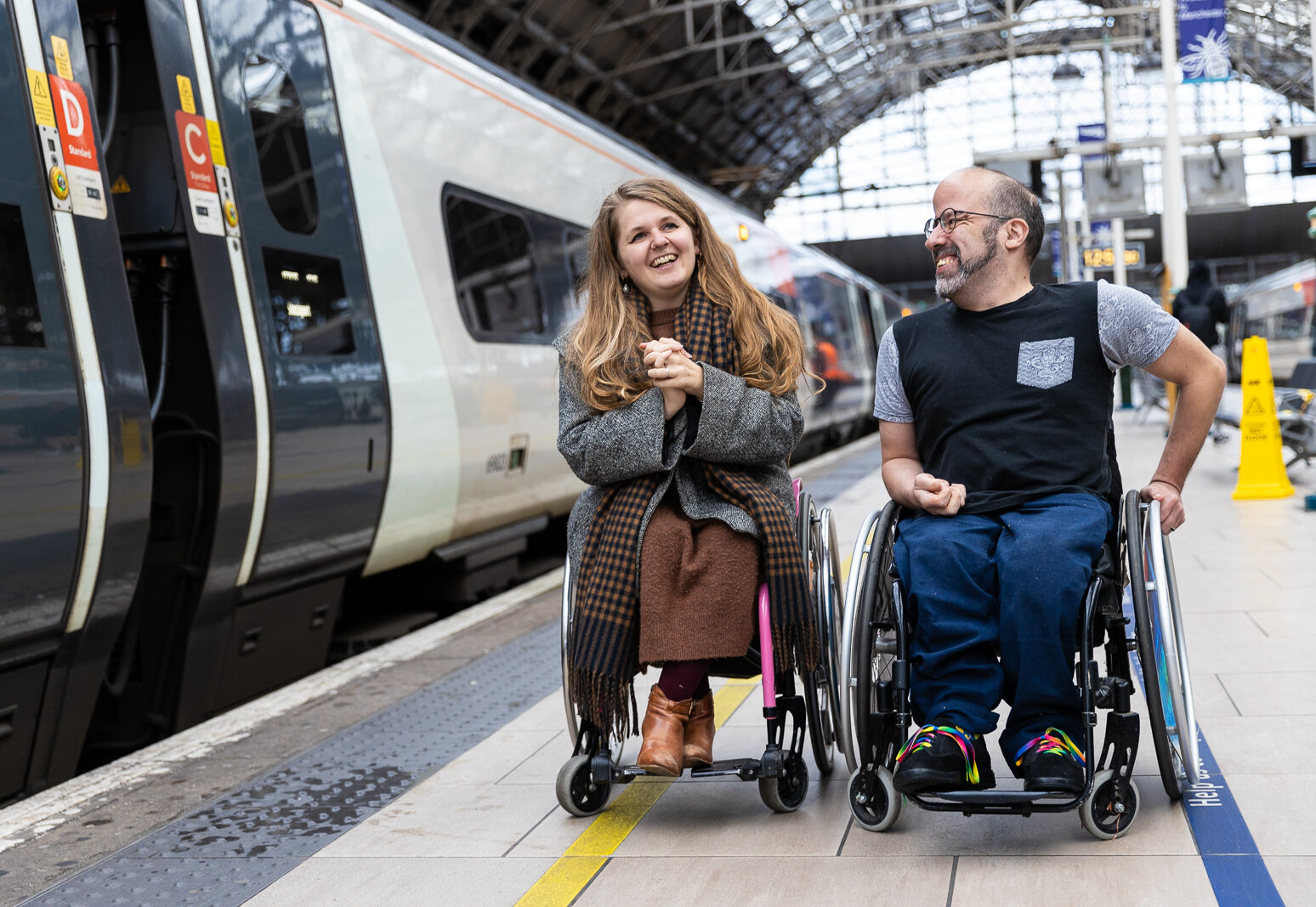
UK Civil Aviation Authority
The UK Civil Aviation Authority stipulates that passengers with disabilities or reduced mobility are legally entitled to ‘Special Assistance’; a form of additional support when travelling by air. This service is provided free of charge by both airlines and airports to ensure an accessible and dignified travel experience.
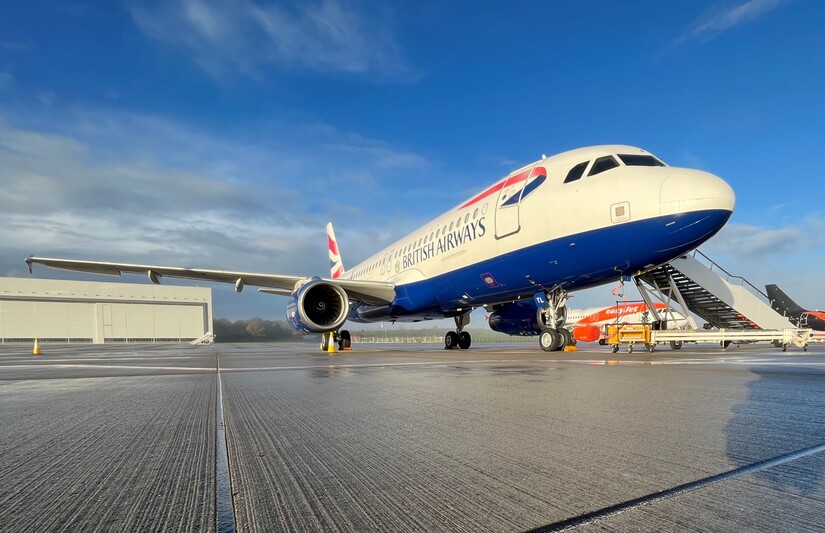
Assimilated Regulation (EU) No 1107/2006
This regulation applies to all flights from the UK and flights to the UK on UK and EU registered carriers and prohibits air carriers from refusing reservation or boarding of passengers because of their disability or reduced mobility. It also ensures that these passengers receive free of charge assistance to enable them to use air transport on an equal footing with other passengers.
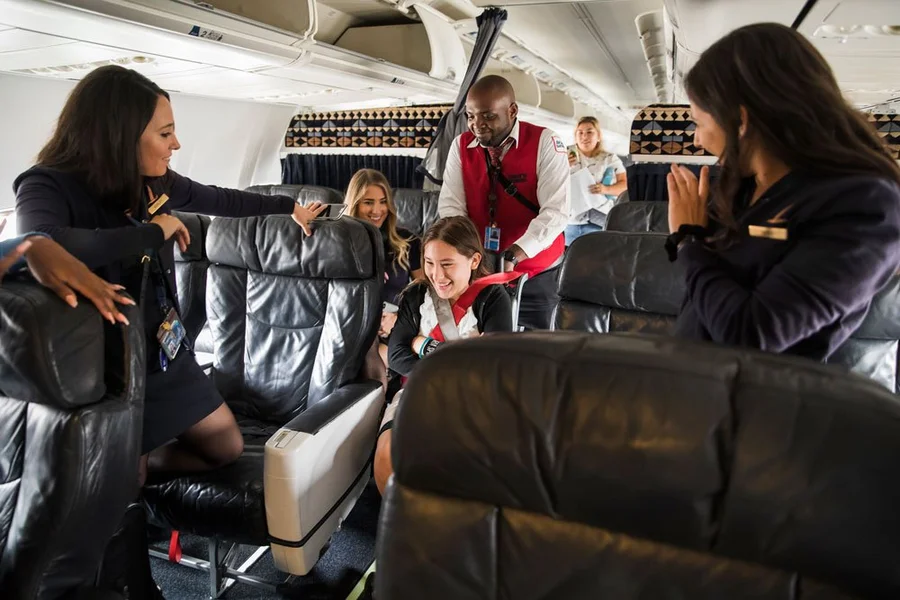
FAA Reauthorization Act of 2024
The FAA Reauthorization Act of 2024, along with a new U.S. Department of Transportation rule, mandates significant improvements in airline accessibility for passengers with disabilities. Key provisions include:
- Annual training for airline personnel
- Timely assistance with boarding and deplaning
- Proper handling of wheelchairs and other mobility devices
- Accessible onboard lavatories
- Clear information on cargo hold dimensions
Airlines are also required to refund fares if they are unable to accommodate assistive devices and to ensure that all services are delivered with dignity and respect.
These measures represent a critical step toward equitable air travel for the 5.5 million Americans who use wheelchairs, helping to create a more inclusive and supportive travel experience.
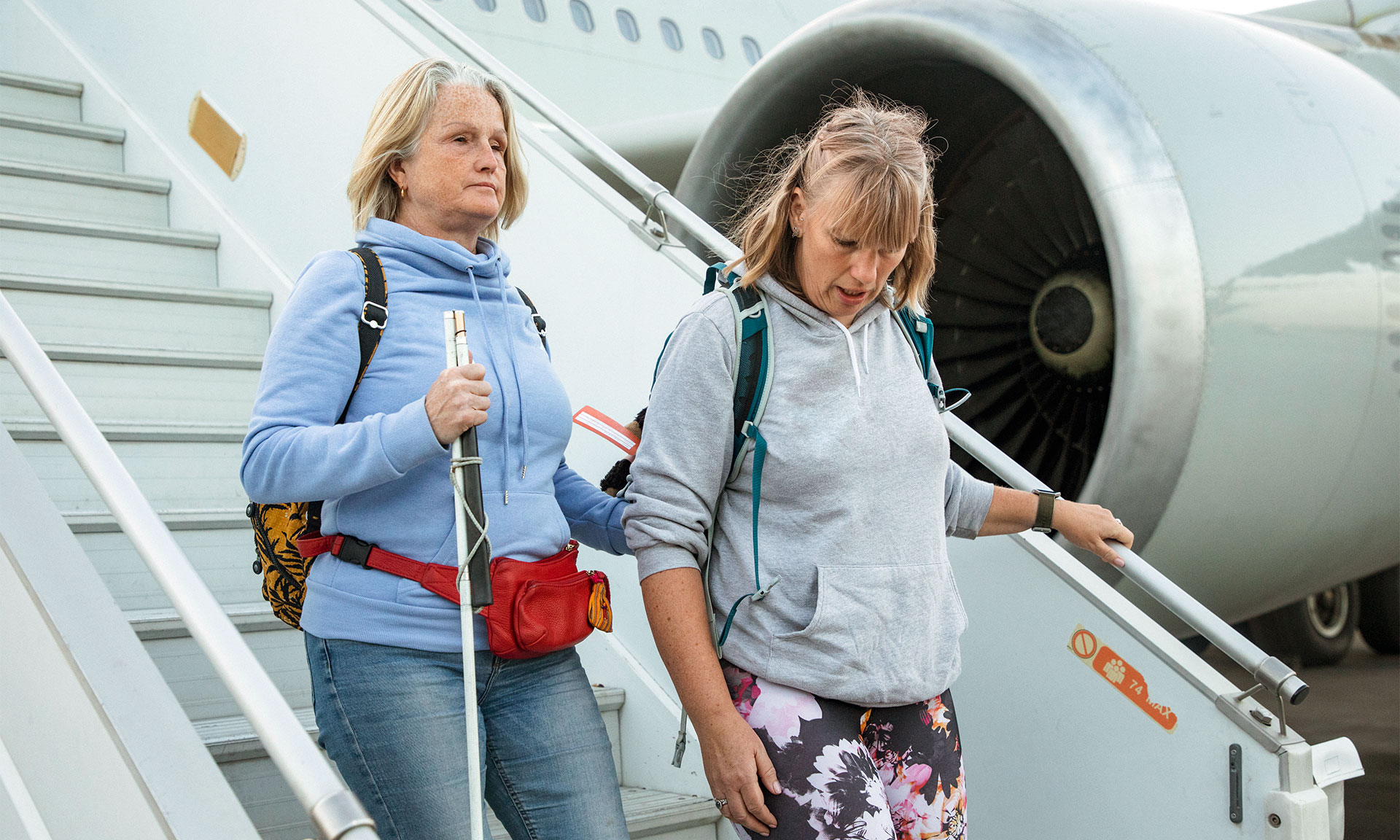
The Maritime Passenger Rights Under Regulation (EU) 1177/2010
Maritime passenger rights under Regulation (EU) 1177/2010 are designed to ensure that disabled persons and those with reduced mobility have the same opportunities to travel by sea and inland waterways as they do in other modes of transport.
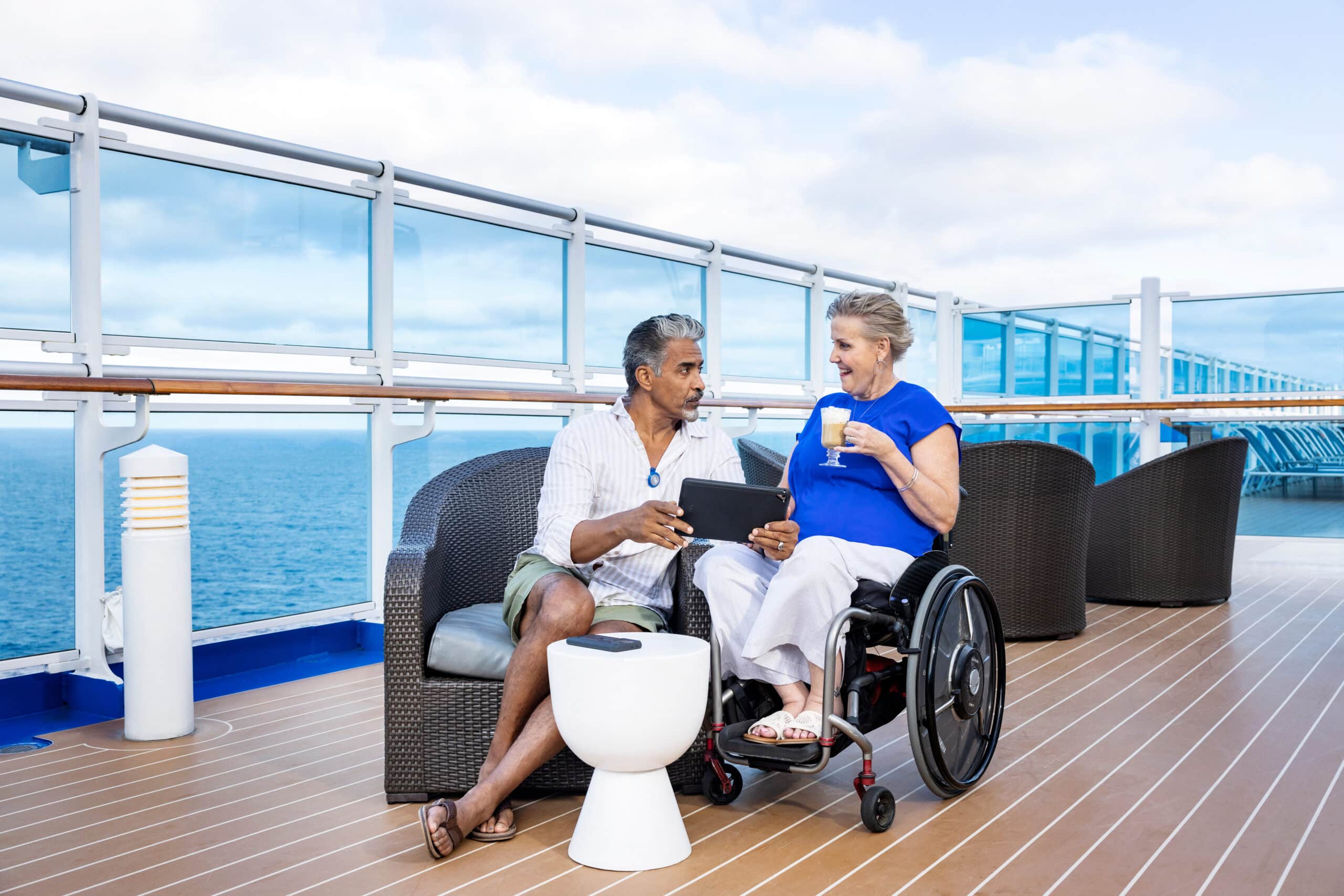
Public Service Vehicles (Conduct of Drivers, Inspectors, Conductors and Passengers) Regulations 1990
Under the Public Service Vehicles (Conduct of Drivers, Inspectors, Conductors and Passengers) Regulations 1990, drivers of public service vehicles must provide disabled passengers with certain types of assistance. For example, they must deploy boarding ramps and lifts to enable access and provide wheelchair users with assistance when required.
Disabled passengers have several rights when travelling by taxi or PHVs. These include:
– Section 20 of the Equality Act 2010, which requires service providers to make reasonable adjustments to enable disabled people to access their services.
– Section 165 of the Equality Act 2010, which requires non-exempt drivers of taxis and PHVs designated as wheelchair accessible to:
- Accept the carriage of wheelchair users,
- Provide appropriate assistance, including the loading of luggage and a wheelchair (should a passenger choose not to travel seated in it),
- Refrain from charging more than other passengers would pay for the same service.
In some areas, mainly larger cities licensed taxis must be wheelchair accessible.

Accessible Travel Policy (ATP)
An Accessible Travel Policy (ATP) outlines the arrangements and assistance an operator will provide to support and protect the interests of disabled passengers and to facilitate their use of the service.

Travel with Confidence - Explore Our Travel-Ready Solutions Here
Our Voyager® transfer chair range offers a comprehensive solution for inclusive travel across aviation, maritime and rail environments. Designed to support individuals with mobility challenges, the Voyager® range enables safe, dignified transfers and evacuations. With a compact, foldable design, the Voyager® range can navigate narrow aisles, stairs and walkways with ease, while also allowing for convenient, space-saving storage.
Looking for support?
Our friendly Customer Experience team is here to help, every step of the way!
Contact us





